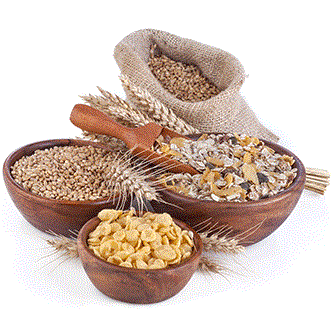
Getting plenty of dietary fiber from cereal, fruits and vegetables helps decrease risk for type 2 diabetes, according to results of the world’s largest diabetes study published in Diabetologia.
The EPIC-InterAct study investigated the relationship between dietary fiber and type 2 diabetes—a growing global public health issue. Type 2 diabetes currently affects more than 360 million people worldwide. This number is expected to increase to more than 550 million by 2030. Since risk for for type 2 diabetes is closely linked to diet, exercise and weight, the good news is that healthy lifestyle choices can go a long way in preventing this condition. In fact, studies suggest that simply having enough fiber in your diet can reduce risk for type 2 diabetes, although most research on the issue was conducted in the United States.
To expand upon these findings, researchers analyzed data from more than 26,000 adults from eight European countries, including Denmark, France, Germany, Italy, the Netherlands, Spain, Sweden and the UK. Among adults included in the study, 11,559 had type 2 diabetes and 15,258 did not. For nearly 11 years, researchers followed participants and collected information on diet, exercise and overall health.
Overall, researchers found that individuals with the highest amount of fiber intake had 18% lower risk of type 2 diabetes than those with the lowest fiber consumption.
When reviewing data from this and 18 additional studies, researchers also found that cereal fiber has the greatest impact on diabetes risk. For each 10 gram/day increase in fiber intake from cereal and oatmeal, risk of diabetes decreased by 25%. In comparison, an overall 10 gram/day increase of fiber from all sources like cereal, fruits and vegetables reduced risk of type 2 diabetes by 9%. Experts suggest that cereal and oatmeal may help people feel full for longer or have a different impact on nutrient absorption.
However, authors note that results of the EPIC-InterAct study were not statistically significant after taking into account body weight. This suggests that while dietary fiber may directly reduce risk for type 2 diabetes, fiber also promotes a healthy body weight, which also reduces risk for diabetes.
Still, dietary fiber remains an important part of a healthy diet and may help significantly reduce risk for diabetes, among other chronic diseases. Dietary fiber is found mainly in fruits, vegetables, whole grains and beans, which are key to a heart-healthy diet. Getting enough fiber through these nutrient-rich foods can go a long way in improving health.